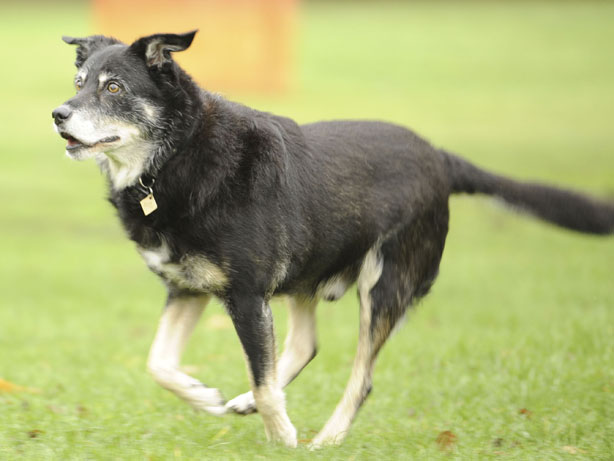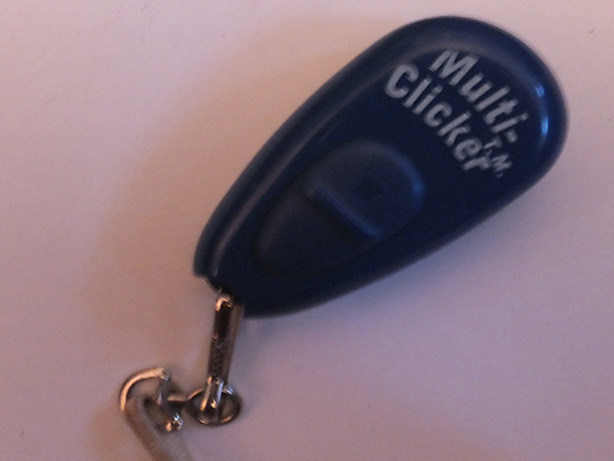
Dog Theft On The Rise – Again
 The insurer Direct Line has undertaken a survey into dog theft and found that 2,290 dogs were reported as being stolen in the UK in 2023, representing a 6% increase on figures from 2022.
The insurer Direct Line has undertaken a survey into dog theft and found that 2,290 dogs were reported as being stolen in the UK in 2023, representing a 6% increase on figures from 2022.
Only 16% were returned which is the lowest success rate in the 9 years since Direct Line have been publishing their survey.
Bull breeds top the list currently, with the trade in stolen dogs being brisk in XL Bullies since the ban was implemented. As expected, implementing a ban has done nothing to deter the criminal fraternity from breeding and selling XL bullies to bolster their activities. Prior to the ban, XL Bullies were not being reported as being stolen, but 37 dogs went missing last year. The decrease in returning dogs to their owners is an alarming 36% since last year.
Most dogs (359) were stolen in London with Kent (138) and West Yorkshire (125) police authorities second and third. Not all constabularies responded so the figures are likely to be an under estimate and only represent the thefts that were reported.
In spite of this, many owners do not have the legally required tag on their dog when out – indeed, many do not even have a collar. The laws requiring dogs to be on lead when on a road are routinely broken and it is still common to see dogs tied up outside shops and cafés. Even in parks, many owners pay more attention to their mobile telephones and children or other people than their dogs.
Next time it could be you.
For the sake of your dog, pay attention at all times when out, don’t ever leave your dog unattended – and that includes in gardens – and get some training so that your recall is reliable.
Thanks a bunch Scotland
 Yet more bad news for those of us who care about canine welfare and want to find effective solutions to problems caused by a variety of dogs and a variety of owners.
Yet more bad news for those of us who care about canine welfare and want to find effective solutions to problems caused by a variety of dogs and a variety of owners.
The fact that Scotland is implementing a ban on XL Bullies is another blow to the effective management of dangerous situations involving dogs, although, understandably, the large influx of dogs is potentially problematic from he country. Replicating an ineffective and potentially dangerous measure is hardly the answer though.
First Minister Humza Yousaf said “…ultimately, although we do have a very good system of dog control notice schemes, and we do take the approach of deed not breed, we have to respond to the situation as it currently stands and therefore we will do what we need to do to ensure public safety.”
Well they patently do not “take the approach of deed not breed” otherwise the ban would not have been considered. Further, Community Safety Minister Siobhain Brown had warned that it is “important to ensure that Scotland does not become a safe haven or a dumping ground for XL Bully dogs from England and Wales”.
Why not a safe haven? Again, this assumes that there is no such thing as non-problematic XL Bully. Meanwhile there is still some leeway for kennels to register XL Bullies in their care as long as the intake was agreed by October 31st, 2023 and the dog was in their care by December 30th, 2023.
How Many Dogs Will Die In 3 Years?
 There’s good news and bad news for dogs in South Korea…The government has announced that it will ban the selling of dog meat in three year’s time.
There’s good news and bad news for dogs in South Korea…The government has announced that it will ban the selling of dog meat in three year’s time.
The “grace” period is being deemed sufficient to allow existing businesses to transition to another trade.
Boshintang (dog meat stew) is a traditional delicacy but a 2023 Gallup poll found that just 8% of those polled admitted to having tried dog meat in the previous 12 months, a reduction from 27% in 2015. Fewer than a 20% of those polled said that they supported the consumption of the meat. Even allowing for a reluctance to admit to an unpopular practice, figures are low.
Once the new legislation is in place, convicted dog butchers will face up to three years in prison and anyone convicted of rearing dogs for meat two years. Details have yet to be announced of compensation for dog meat restaurants.
This is no doubt due to the spread of cultural change prompted by the spread of information globally and the rise in the keeping of dogs as companion animals. Whilst it is to be welcomed, it won’t help the dogs that will be butchered, perhaps under less than ideal conditions, over the next three years. However, it may act as an exemplar for other south Asian countries where the practice still continues.
Why Retractable Leads Should Never Be Used
 Retractable leads are a menace. At best, they teach dogs to pull. At worst your dog could end up like this – and this dog was lucky to be found.
Retractable leads are a menace. At best, they teach dogs to pull. At worst your dog could end up like this – and this dog was lucky to be found.
The argument that they give handlers control was obviously not the case here as the dog went missing trailing the lead. It got caught in hedgerow and it was only by hiring a company with a drone that the dog was found. He was 10kg lighter and had been eating twigs.
Dogs and people can be tanged easily and, when combined with owners not paying attention to their dogs can cause serious injuries.
Dogs should either be on a short lead, on a long line or off lead if safe and under control. Good lead training is essential for dogs and handlers and means that there will never be a need for an extendable lead.
Banned!
 Stop Press! A judicial review of this decision was granted on April 24th, 2024: watch this space for news.
Stop Press! A judicial review of this decision was granted on April 24th, 2024: watch this space for news.
Meanwhile, there have been 8 fatalities already this year, 3 of which did not involve XL bullies. BSL restrictions neither prevented the deaths of the people or the dogs.
Well here we are, with thousands of owners finding that their dogs are now a banned breed…and here we are with goodness knows how many dogs being dumped, stranded in kennels and worse.
Owners of dogs too young to be neutered have some leeway but that has not prevented abuse. 4,000 dogs had been registered by mid-December, with just 2 weeks to go before the ban came into force. Estimates of the number of XL bullies varies widely but most sources cite many more than 4,000 and there is considerable doubt as to how many dogs may be pulled into the remit when they had not previously been regarded as being an XL Bully.
There is plenty of peer-reviewed evidence which shows that breed specific legislation in force across a wide range of jurisdictions does not work, but the current government are not interested in “following the science”. Neither are they interested in putting sufficient resources into tackling the real problems that underly the shocking rise in injuries and fatal dog attacks in the UK.
Needless to say, the fear is that dogs with no previous history of problem behaviour are far more likely to start developing problems if permanently restricted by this tragic and ineffective ban.
Meanwhile, vets, already under great pressure, are faced with impossible options. They are not the police, they are not obliged to euthanise a healthy dogs regardless of the £200 bounty put on the head of every XL Bully by the government. Many owners will not realise that they have to pay for euthanasia and then reclaim the fee; neither do they realise that this may not cover the full cost, including disposal. What are vets supposed to do if they get a request for euthanasia from someone who is not the registered owner?
A BVA Survey found that 90% of vets are owed money by clients and many treat animals without a realistic hope of being paid or provide large discounts on expensive treatments. Even where a debt could be chased, it may not be viable in terms of time and cost to do so.
This knee-jerk reaction that has been railroaded through by a failing government is only going to add to the pressure and result in far worse welfare for dogs. A grim start to 2024.
XL Bully Owners Bite Back
 All is not lost, it seems, in the effort to prevent the XL Bully from being added to the proscribed dogs under the Dangerous Dogs Act 1991.
All is not lost, it seems, in the effort to prevent the XL Bully from being added to the proscribed dogs under the Dangerous Dogs Act 1991.
The Licenceme Group (sic) has raised £150,000 and has already instigated a process which may end in judicial review and could, if successful, perhaps overturn breed-specific legislation altogether.
Licensing probably isn’t the answer to the problem that BSL is trying to address though. It will simply become a tax on dog ownership and irresponsible and criminal elements will evade it. Forgery of paperwork is comparatively easy and there will still be nowhere near enough resources to police the licensing.
We have a model of the problem already with the Pet Passport Scheme which is being roundly abused to allowed the illegal importation of thousands of street dogs as well as puppy farmed dogs, some under the legal age for leaving their mother. None of the national parliaments have done anything about this, so how would a dog licence be any different?
Whilst an overturn of this ineffective legislation would be welcome, a licensing scheme is not a solution to poor breeding and purchasing practices and until we address this, the next “XL Bully” type problem is just aorta d the corner.
XL Error
 It is sadly no surprise that the government has indeed jerked the knee and brought in a ban on the XL Bully.
It is sadly no surprise that the government has indeed jerked the knee and brought in a ban on the XL Bully.
There was a lot of wasted breath, words and time spent by those who know considerably more about the problem than the government – indeed who have to deal with the consequences – in trying to explain why this is a colossal error.
Presumably the government thinks that it can get some easy Brownie points and gain popularity with the red tops by doing this. It surely couldn’t have been because it has learned the lessons from banning the so-called pit bull.
Just as with many kennel club breed standards, it is impossible to work out what dog is being described, the DEFRA “definition” of an XL Bully is so wide as to encompass pretty much every large bull breed. Most police officers don’t know one end of a dog from another so it’s likely that a lot of heartache will ensue and a lot of dogs will be condemned to restricted lives without cause or good reason.
Unlike the previous bans, the government are proposing to offer compensation of £200 (£100 for a “rescue” dog) if owners wish healthy dogs to be euthanised. Currently, the British Veterinary Association policy on euthanasia supports fully vet’s right to refuse to euthanise a healthy animal. Quite what the position will be with a proscribed dog remains to be seen.
It is likely that some owners, perhaps many owners, will not be able or willing to pay the £92.40 required to register a dog deemed to be an XL Bully in addition to the cost of neutering and obligatory insurance. Vets are already under pressure, and the prospect of perhaps many hundreds of owners requesting neutering or euthanasia is unlikely to be able to be accommodated within the timeframe allowed by the law. It will be illegal to re-home, sell, buy or transfer ownership of an XL Bully dog to another person, including rescues, from December 31st, 2023.
The prospect of maybe hundreds of dogs simply being abandoned doesn’t bear thinking about, but it is a very real possibility.
I just hope that I am proved wrong.
Wales Takes The Lead
 Although the Dangerous Dogs Act 1991 is national legislation and is not devolved, Wales and Scotland are able to consider implementing measures to promote responsible dog ownership.
Although the Dangerous Dogs Act 1991 is national legislation and is not devolved, Wales and Scotland are able to consider implementing measures to promote responsible dog ownership.
Accordingly, the Welsh Government has a web page with advice on responsible dog ownership and has called a summit comprising representatives from local government, the police, public health, third sector organisations and canine welfare and public safety campaigns.
This is so much better than the knee-jerk response implementing a ban on XL Bullies from the UK government. Such a response makes it easy to rabble rouse (surely with an eye to forthcoming elections) but does nothing to resolve a grave issue from recurring time and time again. BSL is also expensive and has resulted in the compulsory euthanasia of thousands of dogs that have never been a problem and were never going to be, not least those condemned under the vague designation of being a “pitbull”.
EFRA has released a report on Breed Specific Legislation recommending a focus on prevention through education and early intervention including training courses for dog owners who commit low to mid-level offences similar to the speed awareness courses for drivers.
As with the broken window theory, dealing with this at the lower levels of offences tackles the roots of the problem. It won’t prevent every incident but it may save a lot of dogs and owners from heartbreak.
Where Wales has taken a lead, we should follow.
The Cruelty Of The “Vegan” Dog
 Professor Andrew Knight and vet Arielle Griffiths have ben on Radio 4 plugging their “vegan” dog food.
Professor Andrew Knight and vet Arielle Griffiths have ben on Radio 4 plugging their “vegan” dog food.
Griffiths claimed that “9% of land animals are killed” to provide dog food. This refers to a study led by Knight. Whether or not that is an accurate figure, it ignores the fact that most animal derivatives in dog food are by-products. That is to say, they are the bits that humans don’t eat. The animals would have been slaughtered anyway. If none of those by-products were used for animal feed, they would then have to be incinerated or go into landfill.
A peer-reviewed systematic review of the effects of feeding a “vegan” diet to dogs and cats is promoted on Knight and Griffith’s web site; perhaps in the hope or knowledge that most people won’t click on it or read it in full. The summary is worth quoting in some detail:
Another Knee-jerk Reaction
 The stupidity of the decision to ban the XL Bully knows no bounds. Yet again, the government ignore the weight of peer-reviewed science just as they did with Covid-19, and prioritise a populist response. Nothing to do with pending by-elections and a general election of course.
The stupidity of the decision to ban the XL Bully knows no bounds. Yet again, the government ignore the weight of peer-reviewed science just as they did with Covid-19, and prioritise a populist response. Nothing to do with pending by-elections and a general election of course.
Once German Shepherds were demonised and the Staffie was the Nanny Dog and then they were demonised and became the media’s”devil dogs”. Now it is another bull breed derivative.
It seems the government is not prepared to learn the lessons from listing the so-called pit bull and we will have yet more perfectly fine dogs confined to leads and muzzles for no good reason and worse – owners will be obliged to neuter so that we will effectively be reducing the pool of dogs with good temperaments. More so-called expert witnesses will be polishing their callipers ready to measure those massive heads – how many millimetres over their limit does a bully have to be to be condemned even if it has done nothing?
There is a serious problem and that has led to so many injuries and fatalities this year but it is far more complex than sticking a type of dog on a list. Whether it’s a large dog confined to a council flat or a dog walker unable to cope with too many dogs, the problem lies with breeding, purchase and ownership.
This was a missed opportunity to improve the legislation regarding breeding and responsible ownership, a missed opportunity to support behaviourists and trainers who are trying to deal with the consequences and a missed opportunity to save lives.
XL bullies are already being dumped and now will probably be culled as, once the legislation is enacted, it will be illegal to exchange or sell them. Responsible owners will be demonised and, right now, I am thinking of the delightful XL Bully bitch that my puppy was romping with last week. She was well-trained and well cared for and, despite being three times the size and weight of my puppy had perfect play manners.
Rishi Sunak might like to consider that his own chosen breed, the Labrador is a restricted breed in Ukraine and they feature high on the list of dogs causing injury in the UK. Of course, the Labrador has excellent PR – puppies rolling around with lavatory paper, Guide Dogs; but anyone that has been on the receiving end of an aroused Labrador may have a different view, as might the person who like me, had a whale of a time playing with an XL Bully.



